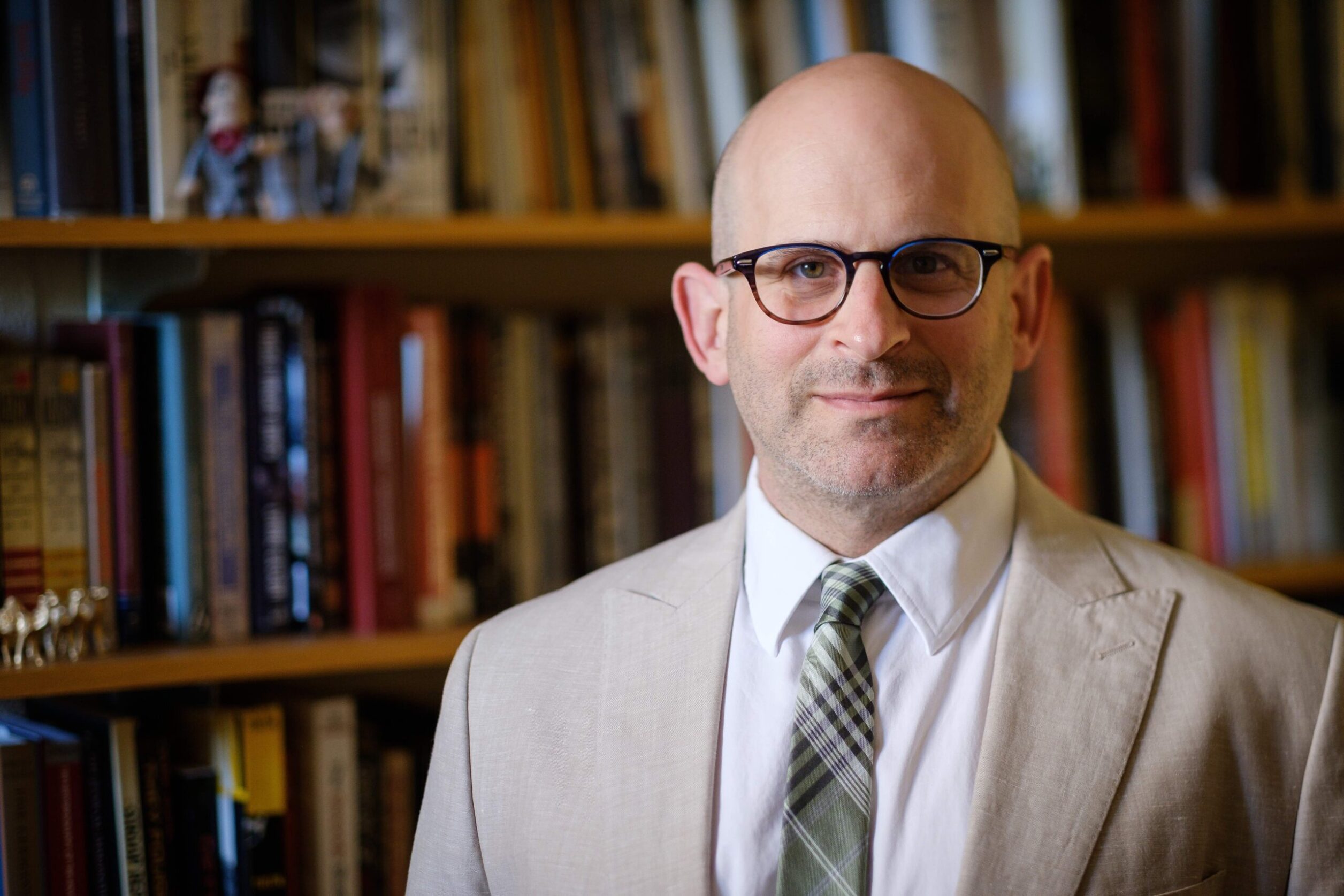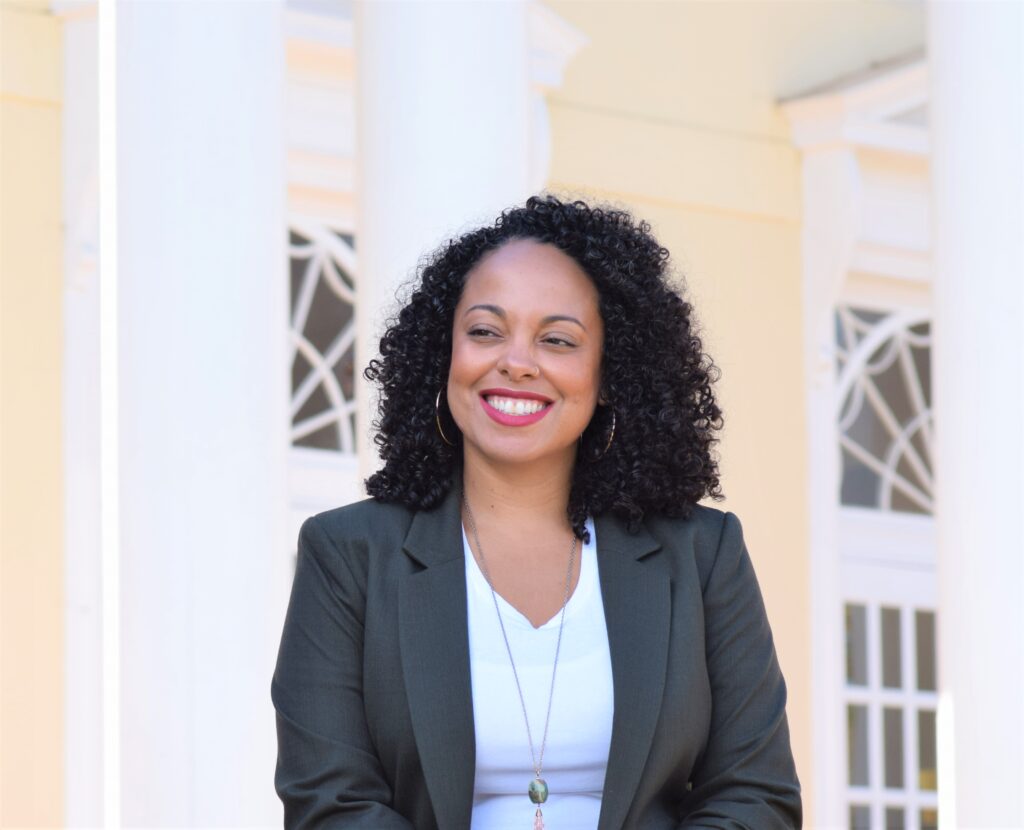Faculty Spotlight
Faculty Spotlight was created by Caroline Parrish (WFU ’24), Intern for the Humanities Institute, 2022-2024. This series of interviews features Wake Forest faculty who engage with the humanities! Each month, the WFU Humanities Institute Newsletter will contain a brief snippet of an interview with a different faculty member with a link to the HI website to read the writeup in full.
The mission of this project is to engage more of our campus community with the humanities, as well as increase visibility of faculty projects. We want professors to know what everyone else is working on!
2023-2024 Interviews
Dr. Barry Trachtenberg
Interview by Caroline Parrish (WFU ’24)

“I want my classes to be a tool for students to understand historically how we’ve reached the contemporary period.”
Dr. Barry Trachtenberg
Dr. Barry Trachtenberg of Jewish Studies in the Wake Forest History Department finds himself committed to both unraveling the narrative of the past, as well as shaping the story of the future. He teaches an undergraduate research seminar in which he is dedicated to showing students the power of the archives. At the same time, he believes in the necessity of relating history to the current moment.
“I want my classes to be a tool for students to understand historically how we’ve reached the contemporary period,” Dr. Trachtenberg says of his teaching philosophy. “My interest in teaching the Holocaust and genocide through the lens of the Jewish past is very much motivated by a desire to see an end to racial and ethnic violence more broadly.” History and the present are inextricably linked; Dr. Trachtenberg knows that genocide does not exist in a vacuum. The Holocaust, for example, has “many antecedents, such as European colonialism, eugenics, social Darwinism, and anti-Semitism.”
In 2022, he published a book on the Yiddish Encyclopedia, a cultural initiative of pre-war Europe that fought its way to post-war America. This work is a testament to the power of the archives; as the editors fled war-torn Europe, their work became scattered across the world. Dr. Trachtenberg traveled widely, pursuing the trails of the dispersed encyclopedists – to South Africa, France, and the Netherlands, among others. This Encyclopedia, as he says, also works to bridge the gap between past and present; it is “a tool through which to engage with some of the most pressing crises facing Jews during the Holocaust and then surviving Jews as they fought to contend with the aftermath.”
Dr. Trachtenberg’s more recent work has sought to respond to the genocide against Palestinians in Gaza. He says, “my study of the Holocaust and Jewish history has led me to teach and write on the history of Zionism and the ways in which support for Israel has become so predominant within the American Jewish community.” Following what he believes to be a lack of appropriate response on behalf of the university, Dr. Trachetenberg fought to bring more resources to campus. “We created a series of conversations for faculty and staff, a teach-in for the campus community, and then a larger reading group around journalist Nathan Thrall’s new book, A Day in the Life of Abed Salama.”
Dr. Trachtenberg believes firmly in the power of the archives, as well as the ability of students, professors, and researchers to be guided by them. So many primary sources from the Holocaust were destroyed during and shortly thereafter World War II, so “we have to learn how to read and contend with absences and look for creative ways to find evidence in support of the research that we’re doing.” Putting together the pieces of the past often means taking a new lens to old material, to fill in the gaps torn from our history.
Dr. Brittany Battle
Interview by Caroline Parrish (WFU ’24)

“How do we make sure that the classroom is a site of care and community? How do we practice radical love and inclusion?”
This is a question that Dr. Brittany Battle grapples with every day in her teaching at Wake Forest. In fact, compassion is an integral component of all of her outreach; care is a fundamental part of abolition work, which she says is a facet often left omitted from the discussion.
Dr. Battle is an Assistant Professor in the Wake Forest Sociology Department and Affiliate Faculty of the African American Studies Program. She is also one of the founders of the Triad Abolition Project, a grassroots organization that works to address the issues of the carceral state and provide adequate resources to those impacted by it. These two facets of Dr. Battle’s work do not exist in a vacuum, however. She is constantly bridging the gap between Wake Forest and the broader community.
“I strongly believe in community-engaged research. We hire researchers from the community that have experiences that we’re studying. [I believe in] research from the margins.” Dr. Battle realizes that the Winston-Salem community is sometimes hesitant to trust researchers from Wake Forest, and she is committed to involving people outside of campus in her restorative work as much as possible. Her mission doesn’t stop there, though. She’s as strongly committed to the culture she fosters inside the classroom as out of it.
“I’m deeply informed by bell hooks and her understanding of the classroom as a site of transgression and the ways we can bring in really strong analyses of power and marginalization and oppression into the things that we teach.” The traditions of Black feminism have empowered and inspired Dr. Battle to be transformational: in her classroom, in her scholarship, and in her activism. She’s looking forward, considering how her efforts will impact the next generations: “I really want students to understand the possibilities for what they can do in the future. That is super important, beautiful, and my favorite part of my job – to collaborate with students as they do this kind of work.”
Dr. Battle’s work is deeply rooted in compassion in an effort to make Wake Forest, Winston-Salem, and the world at large a more just place. She tasks her students with finding what lights their fire, what burns them up inside. It is that fire, she says, that will drive the kinds of thinking that make change.
For more information on Dr. Battle’s work, check out the Triad Abolition Project’s website here, and her university bio page here.
